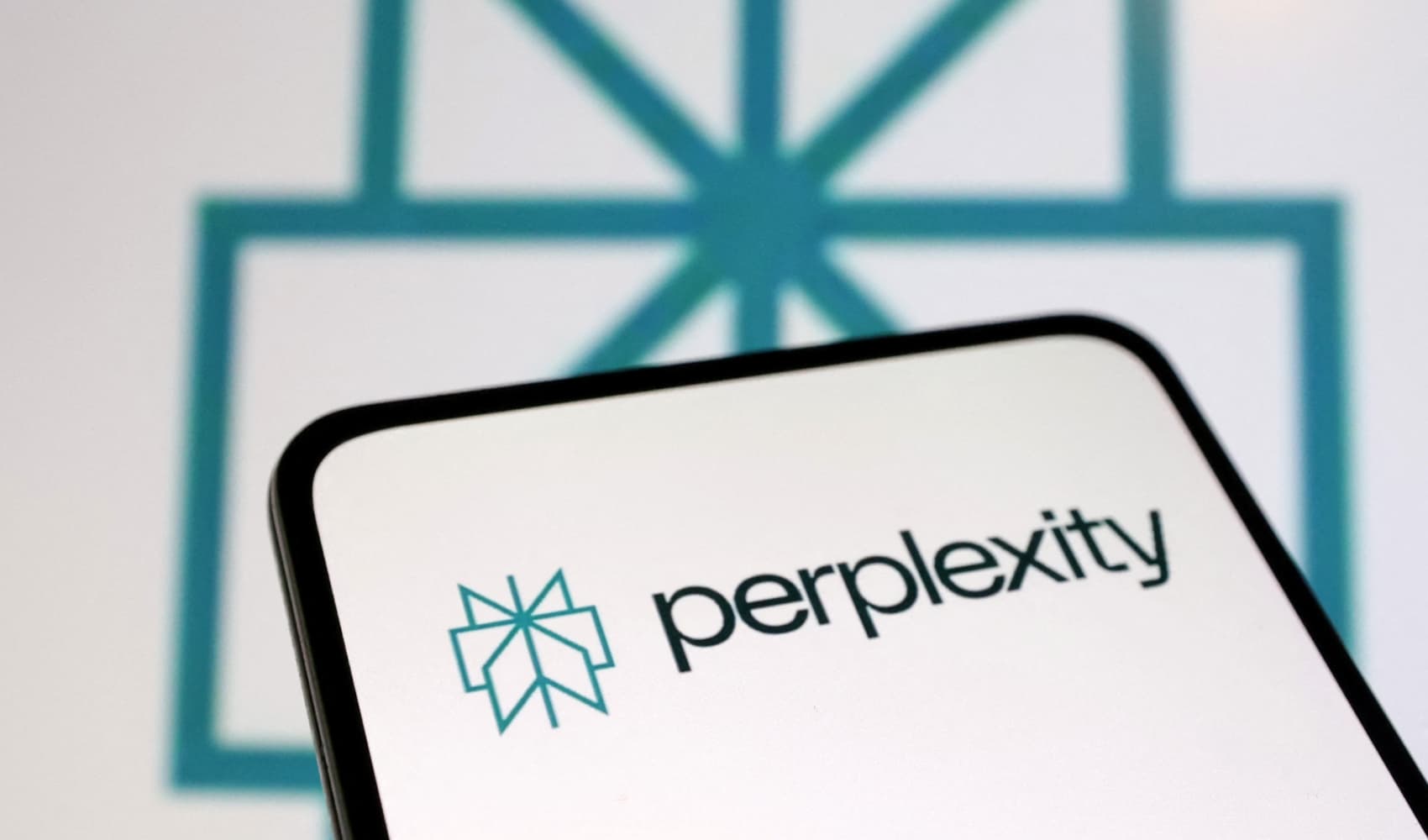Elon Musk's xAI: $20B Funding Round Signals AI Revolution?
Elon Musk's xAI Eyeing Massive $20 Billion Funding Round: Revolutionizing AI?
Introduction: The Next AI Powerhouse?
Hold onto your hats, folks! The world of Artificial Intelligence is about to get another major shakeup. According to Bloomberg News, Elon Musk's xAI Holdings is reportedly in talks to raise a staggering $20 billion. Yes, you read that right – twenty billion dollars! But what does this mean for the future of AI, and why is everyone so excited?
xAI's Ambitious Goals: Beyond the Hype
So, what exactly is xAI, and why does it warrant such a hefty investment? Well, xAI isn't just another AI company; it's Elon Musk's vision for understanding the universe. Ambitious, right? The company aims to develop AI that's not just smart, but also safe and beneficial for humanity. They are focusing on fundamental research and development, aiming to build AI that can discover and understand the true nature of reality. Think of it as AI that's not just good at playing games, but at solving the mysteries of the cosmos.
The $20 Billion Question: What's It All For?
Okay, $20 billion is a LOT of money. What's xAI planning to do with all that cash? The funding will likely fuel several key areas:
- Research and Development: Building cutting-edge AI models requires significant investment in computing power, talent, and data.
- Talent Acquisition: Attracting the best and brightest AI researchers and engineers is crucial for xAI's success.
- Infrastructure Development: xAI needs to build robust infrastructure to support its AI development efforts, including data centers and cloud computing resources.
- Partnerships and Acquisitions: Strategic partnerships and acquisitions could help xAI accelerate its progress in specific areas of AI.
Valuation Over $120 Billion: Is It Justified?
The report suggests that this funding round would value xAI at over $120 billion. That's a hefty price tag for a company that's still relatively young. But is it justified? The answer, like most things in the AI world, is complex. The valuation likely reflects the immense potential of AI and the market's confidence in Elon Musk's ability to disrupt industries. It's also influenced by the scarcity of AI companies that are tackling such fundamental challenges.
Musk's Vision: A "Proper Value" for xAI
According to CNBC's David Faber, Musk has been looking to assign a "proper value" to xAI. What does that mean? Well, it suggests that Musk believes the market hasn't fully appreciated the potential of xAI. He likely sees this funding round as an opportunity to solidify xAI's position as a leading player in the AI space. This funding acknowledges the revolutionary potential and unique goals of xAI, positioning the company to lead in future AI advancements.
Competition in the AI Arena: xAI vs. the Giants
xAI isn't the only player in the AI game. It faces stiff competition from established tech giants like Google, Microsoft, and Meta, as well as other well-funded startups like OpenAI and Anthropic. So, how can xAI compete? xAI's unique approach and focus on fundamental research could give it a competitive edge. By tackling the most challenging problems in AI, xAI could potentially develop breakthroughs that differentiate it from the competition. Furthermore, Musk's visionary leadership and track record of disrupting industries could attract top talent and generate significant buzz around xAI.
The Ethical Implications: AI for Good, or...?
The Responsibility of AI Development
With great power comes great responsibility, right? As AI becomes more powerful, it's crucial to consider the ethical implications. Will AI be used for good, or could it be misused? xAI has stated its commitment to developing AI that's safe and beneficial for humanity, but ensuring that AI is used ethically requires careful planning and ongoing monitoring. It's a complex challenge with no easy answers.
Aligning AI with Human Values
Ensuring that AI aligns with human values is paramount. How do we teach AI to understand and respect our values? This is a field of active research, and xAI is likely exploring various approaches to ensure that its AI systems are aligned with human interests. The potential impact of AI on society makes it imperative that it is guided by ethical principles.
The Future of AI: What's Next for xAI?
Beyond Current AI Capabilities
The current state of AI is impressive, but it's still far from reaching its full potential. What are the next frontiers in AI research? xAI is likely exploring areas such as artificial general intelligence (AGI), which aims to create AI that can perform any intellectual task that a human being can. This would represent a significant leap forward in AI capabilities.
Transforming Industries and Society
AI has the potential to transform virtually every industry and aspect of society. From healthcare to transportation to education, AI could revolutionize the way we live and work. xAI's ambitious goals could lead to breakthroughs that accelerate this transformation and create a better future for all.
Investment Risks: Is xAI a Safe Bet?
The Volatile Nature of Tech Investments
Investing in technology companies, especially those in cutting-edge fields like AI, is inherently risky. The technology landscape is constantly evolving, and there's no guarantee that any particular company will succeed. What are the risks associated with investing in xAI? The company could face technological challenges, regulatory hurdles, or competition from other AI companies.
Market Fluctuations and Economic Uncertainty
Market fluctuations and economic uncertainty can also impact the value of technology companies. A downturn in the economy could lead to reduced investment in AI and a decline in the value of xAI. Investors need to be aware of these risks and carefully consider their investment strategy.
Decoding the Funding Buzz: What Experts Are Saying
Industry Analyst Perspectives
What are industry analysts saying about the potential funding round for xAI? Experts are likely analyzing the company's technology, market position, and competitive landscape to assess its prospects for success. Their insights can provide valuable information for investors and those interested in the future of AI.
The Hype vs. Reality of AI Investments
It's important to separate the hype from the reality when it comes to AI investments. While AI has tremendous potential, not all AI companies will succeed. Investors need to carefully evaluate the underlying technology, business model, and management team before making any investment decisions. Is the $120 billion valuation just hype or is it justified? Time will tell.
Elon Musk's Influence: The Musk Factor
The Power of the Musk Brand
There's no denying that Elon Musk's involvement in xAI adds a certain "Musk factor" to the company. His track record of disrupting industries with companies like Tesla and SpaceX has made him a highly influential figure in the tech world. How does the Musk factor impact xAI's prospects? Musk's involvement could attract top talent, generate significant buzz around the company, and increase investor confidence.
Elon Musk's Management and Vision
Elon Musk's management style and vision will also play a crucial role in xAI's success. He is known for his ambitious goals, hands-on approach, and willingness to take risks. These qualities could help xAI achieve breakthroughs in AI that others might not be able to achieve.
The Future is Now: AI's Impact on Our Lives
Daily Applications of AI
AI is already impacting our lives in countless ways, from personalized recommendations on streaming services to virtual assistants like Siri and Alexa. How will AI continue to transform our daily lives in the future? We can expect to see AI integrated into even more aspects of our lives, from healthcare to transportation to education.
The Evolution of the Workforce
AI is also transforming the workforce, automating tasks and creating new job opportunities. How will AI impact the future of work? While some jobs may be displaced by AI, new jobs will also be created in areas such as AI development, data science, and AI ethics. It's important to prepare the workforce for these changes by investing in education and training programs.
Conclusion: Is xAI Primed to Reshape the AI Landscape?
So, is xAI poised to become the next big thing in AI? The reported $20 billion funding round suggests that investors are betting big on Elon Musk's vision. With its focus on fundamental research and its commitment to developing safe and beneficial AI, xAI has the potential to reshape the AI landscape. However, the company faces significant challenges, including intense competition and the ethical implications of AI development. Ultimately, xAI's success will depend on its ability to develop groundbreaking AI technologies and navigate the complex ethical landscape of AI.
Frequently Asked Questions
- What is xAI, and what are its goals? xAI is an artificial intelligence company founded by Elon Musk with the goal of understanding the true nature of the universe and developing AI that is both intelligent and beneficial for humanity.
- Why is xAI seeking $20 billion in funding? The funding is likely intended to support xAI's research and development efforts, talent acquisition, infrastructure development, and potential partnerships or acquisitions.
- How does xAI differ from other AI companies like Google or OpenAI? xAI distinguishes itself through its focus on fundamental research and its ambitious goal of understanding the universe.
- What are the ethical considerations surrounding xAI's work? Key ethical considerations include ensuring that AI is developed and used safely and responsibly, aligning AI with human values, and avoiding biases in AI algorithms.
- What are the potential risks and rewards of investing in xAI? Potential risks include the volatile nature of tech investments, market fluctuations, and competition from other AI companies. Potential rewards include significant financial returns if xAI successfully develops groundbreaking AI technologies.



